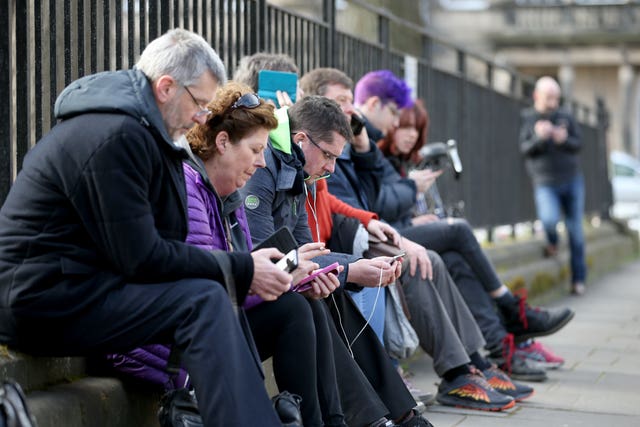Cheap alarm clock better for children than having smartphones at night – expert
Professor Adam Joinson said he and his 17-year-old son had endless fights about the teenager’s smartphone being in his bedroom at night.

Parents should take their children’s smartphones away from them at night and instead buy them a cheap alarm clock, an expert has said.
Professor Adam Joinson said he and his 17-year-old son had endless fights about the teenager’s smartphone being in his bedroom at night but he was banned until he turned 18.
He said teenagers lacked the cognitive skills to realise that staying up all night using a smartphone would mean they were tired for school the next day.
Prof Joinson, whose work at the University of Bath focuses on cyber security and behaviour, said smartphones should not be the last thing they see at night and the first thing they see in the morning.
“There is not a vast amount of evidence for this, but parents should take the phones off their kids at night. Store the charger downstairs and buy cheap alarm clocks,” he said.
“I did it with my 17-year-old. It causes endless fights but otherwise he will be on it all night. Young people do not have the ability until they are in their 20s to fully understand consequences of actions now tomorrow.
“This is a basic developmental thing and cognitively they cannot do it. They won’t say ‘I better not stay on my phone all night otherwise I’ll be exhausted tomorrow’.
“As parents we have a responsibility of care. Generally, I think parents are remiss if they allow their kids to keep phones in their bedrooms.”
Prof Joinson, who was speaking at an event at the Cheltenham Science Festival discussing whether technology was bad for you, said one way of people digitally detoxing was to leave their phones downstairs.
He said it was still too early to say what damage could be potentially caused by modern technology.
“Farming took 6,000 years to spread and develop, from seeds to the domestication of animals,” he said.
“The industrial revolution took 80 to 100 years to spread. We are now 29 years since the invention of the world wide web, we are 11 years since the first iPhone and it was only 14 years ago that Mark Zuckerberg was developing Facebook in his dorm at Harvard.
“We are bang in the centre of something that is absolutely transforming how we engage with each other and society in general.
“That makes it very difficult to exactly know what the impact is and be able to step aside and look at the possible long-term impact.
“But we can start to see some small ways of understanding the impact of technology. For examples for brains and their cognitive function.”

“People who intensively use a smartphone are lower in analytic thinking and instead they have effectively outsourced their analytic thinking to Google or Siri or to Alexa,” he said.
“People are less likely to remember facts when they have got a smartphone with them but they are more likely to remember how to find those facts.
“People who intensively use smartphones are worse at delaying gratification and there is some evidence that it pushes people towards sensation seeking and instant gratification.
“Some studies have shown that if you take someone’s phone from them and ping it with a notification and you measure their physiology they show ridiculous levels of stress and anxiety if you don’t allow them the phone.
“The mere presence of this small device changes the way we are able to focus and concentrate.”





